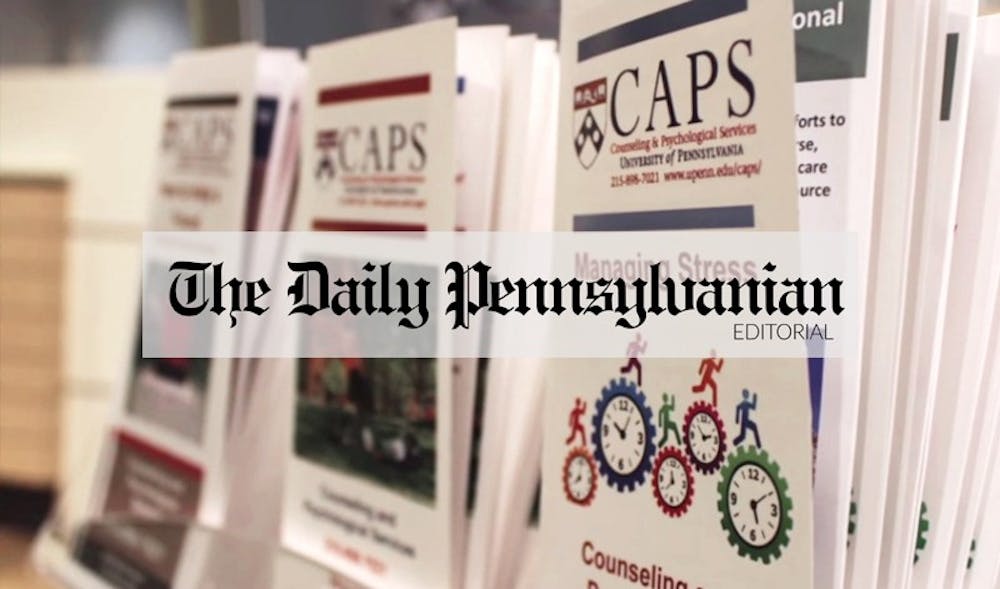
On Sept. 18, Penn administrators met with students pushing for mental health changes on campus. And, encouragingly, the University seemed receptive to the proposed changes.
During the meeting — organized after student leaders delivered a letter to Penn President Amy Gutmann’s office demanding the University implement programs to improve mental health — administrators said they would research several of the ideas, including the ability to schedule appointments online and assign all students designated Counseling and Psychological Services counselors.
We’re happy to see that administrators are taking these proposals seriously. But we think they are mistaken to reject the recommendation to create a mental health event during New Student Orientation.
Penn has already developed a robust series of “Thrive at Penn” videos for incoming freshmen, one of which is a 10-minute video on mental health and general wellness. While creating a “virtual introduction” to CAPS might be helpful, we doubt that another online introductory resource would help Penn reach students it’s not currently reaching through the “Thrive at Penn” videos.
While most incoming students actually watch the online orientation videos, it’s likely that a large number of students just press the play button and listen to music or do homework as the video runs in the background. When it comes time to take the quiz at the end of each video, it doesn’t matter whether the student watched the video or finished a problem set in the meantime — a good deal of the questions are based on common sense, so the student could answer them regardless.
Hosting a mandatory, in-person mental wellness event during NSO, however, would make it more likely that the students who skipped through the online materials actually learn about mental health resources on campus. There’s also an aspect of seeing something for yourself or meeting someone in person that makes it easier to relate to or trust them. Introducing new students to CAPS (potentially as an addition to a campus tour, like the one piloted at Kings Court this fall) could make them feel more comfortable about reaching out for help if they’re struggling in the future.
We don’t think the NSO event — or any of the proposals, really — will completely solve Penn’s mental health problem. But that’s because it’s not a problem that can be solved by the University administration — only eased by it. We support these proposals because we think they will better inform students about available mental health resources, and we will continue to support methods of improving mental health on campus because, at the moment, it’s the most we can do.
The Daily Pennsylvanian is an independent, student-run newspaper. Please consider making a donation to support the coverage that shapes the University. Your generosity ensures a future of strong journalism at Penn.
DonatePlease note All comments are eligible for publication in The Daily Pennsylvanian.




